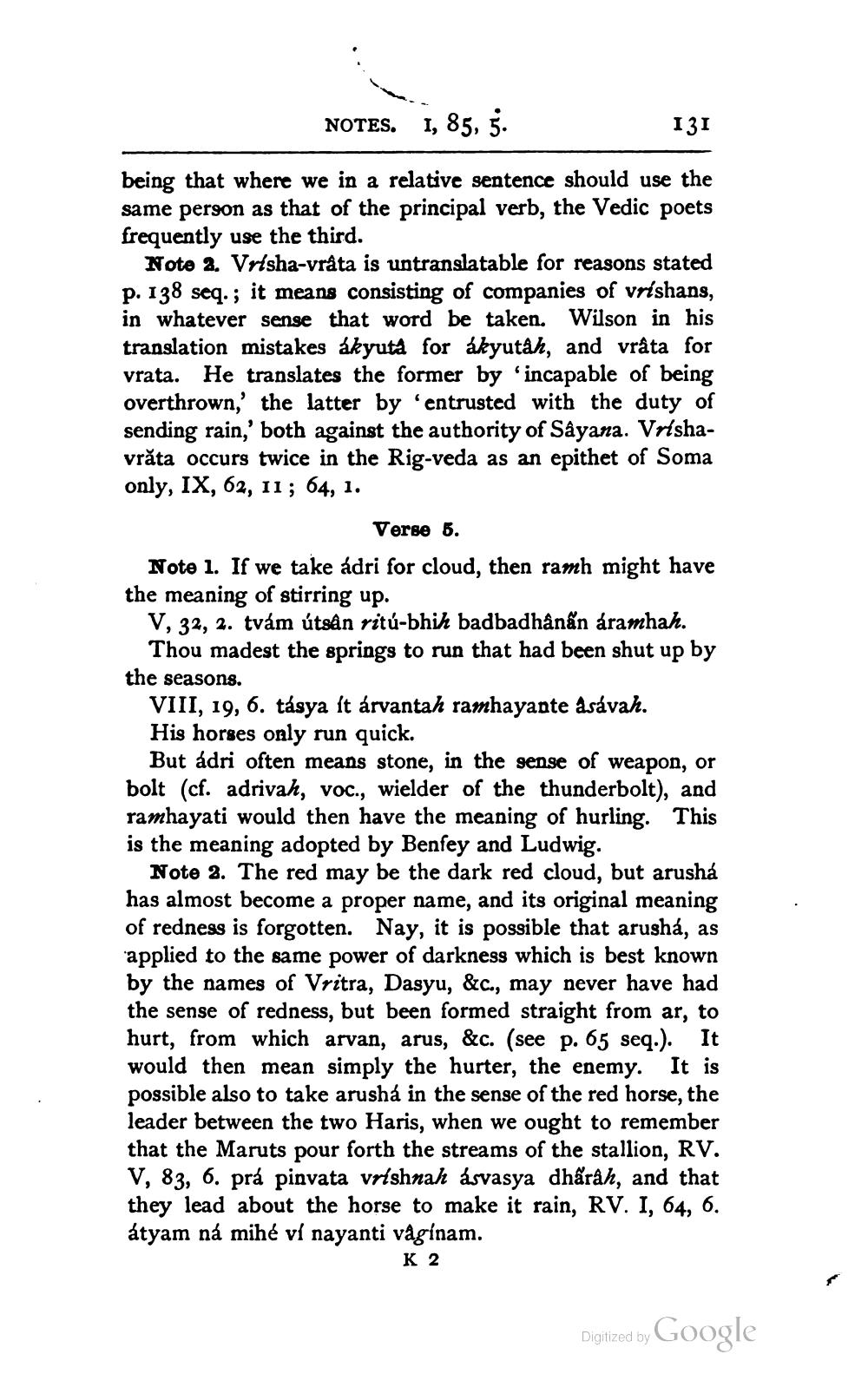________________
NOTES. I, 85, 5.
131
being that where we in a relative sentence should use the same person as that of the principal verb, the Vedic poets frequently use the third.
Note 2. Vrtsha-vråta is untranslatable for reasons stated p. 138 seq.; it means consisting of companies of vrishans, in whatever sense that word be taken. Wilson in his translation mistakes akyuta for ákyutah, and vråta for vrata. He translates the former by 'incapable of being overthrown,' the latter by 'entrusted with the duty of sending rain,' both against the authority of Sayana. Vrlshavrăta occurs twice in the Rig-veda as an epithet of Soma only, IX, 62, 11; 64, 1.
Verse 5. Note 1. If we take ádri for cloud, then ramh might have the meaning of stirring up.
V, 32, 2. tvám útsân ritú-bhih badbadhânán áramhah.
Thou madest the springs to run that had been shut up by the seasons. | VIII, 19, 6. tasya ít irvantal rahayante asavah.
His horses only run quick.
But ádri often means stone, in the sense of weapon, or bolt (cf. adrivah, voc., wielder of the thunderbolt), and ramhayati would then have the meaning of hurling. This is the meaning adopted by Benfey and Ludwig.
Note 8. The red may be the dark red cloud, but arusha has almost become a proper name, and its original meaning of redness is forgotten. Nay, it is possible that arusha, as applied to the same power of darkness which is best known by the names of Vritra, Dasyu, &c., may never have had the sense of redness, but been formed straight from ar, to hurt, from which arvan, arus, &c. (see p. 65 seq.). It would then mean simply the hurter, the enemy. It is possible also to take arusha in the sense of the red horse, the leader between the two Haris, when we ought to remember that the Maruts pour forth the streams of the stallion, RV. V, 83, 6. prá pinvata vrishnah ásvasya dharah, and that they lead about the horse to make it rain, RV. I, 64, 6. átyam na mihé vi nayanti vaginam.
K 2
Digitized by
Digitized by Google




